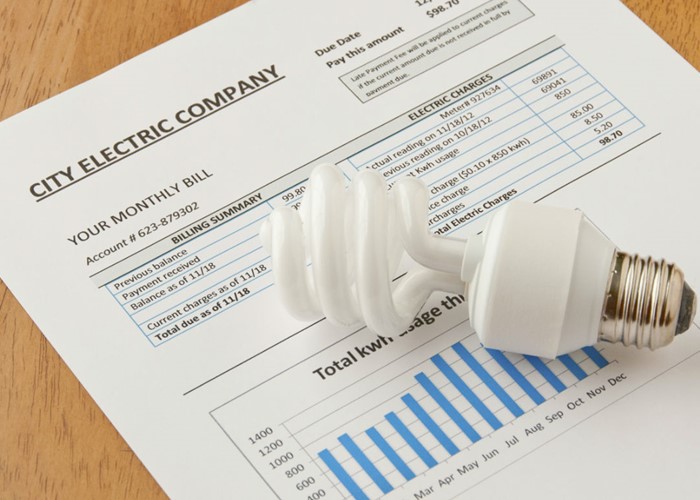A quarter of us overcharged by energy companies

New research finds plenty of us have uncovered costly errors on our energy bills.
Almost a third of us have found an error on our energy bills, according to new research, with a quarter of us being overcharged on average by £121.
The research was conducted by the Keep Me Posted campaign, which campaigns for the right for people to receive free bills and statements in the post.
It found people who receive their bills in the post are more likely to spot a mistake than people who manage their bills online.
Younger people were the least likely to check their bills for errors, particularly those who receive their bills online.
The over 65s were the age group who check their bills the most.
How to measure your gas and electricity usage
On a simple level, gas and electricity consumption is measured in kilowatt hours. Your bill may have an actual reading (indicated by an A) or an estimated reading (indicated by an E). To change an E to an A, all you need to do is give the energy company a meter reading.
Many gas meters record gas usage in either hundreds of cubic feet (the old imperial way, indicated by either the words ‘cubic feet’ or ‘Ft’ on the meter) or cubic meters (shown by the words cubic metres or the letter M on the meter).
The calculation into kilowatt hours then differs slightly depending on whether it’s cubic feet or metres.
For cubic feet it’s: The number of units you've used x The metric conversion factor (2.83; this gives the amount used in cubic metres) x The volume conversion factor (the differences in temperature and pressure; always 1.02264) x The calorific value of the gas (the heat generated by the gas; this is shown on your bill) divided by 3.6 = kilowatt hours.
And for cubic metres it’s: The number of units you’ve used x The volume conversion factor x The calorific value divided by 3.6 = kilowatt hours.
The kilowatt hours are then multiplied by your unit price and that’s your gas charge.
Meanwhile, electricity usage is a simple kilowatt hours calculation, based on how much you’ve used since the last meter reading.
The kilowatt hours are then multiplied by your unit charge.
If you’re on an Economy 7 or Economy 10 tariff then your usage will be charged at different rates, depending on the time of day you've used electricity.
Other things to watch out for
There are other charges to watch out for that could be incorrectly charged on your bill, including:
- the standing charge, if you have one;
- VAT, which should be at 5%;
- any discounts, such as for paying by direct debit or not receiving paper bills.
What to do if you've been overcharged
If you think you have been overcharged, you should take it up with your energy supplier. You can find out more about how to go about this in How to complain about your energy supplier.
Not happy with your supplier? See if you can save money by switching
More on energy
How to switch energy supplier
The UK's worst energy provider
Where to get help with paying your energy bills
How I'm heating my house for 8p a day
Comments
Be the first to comment
Do you want to comment on this article? You need to be signed in for this feature